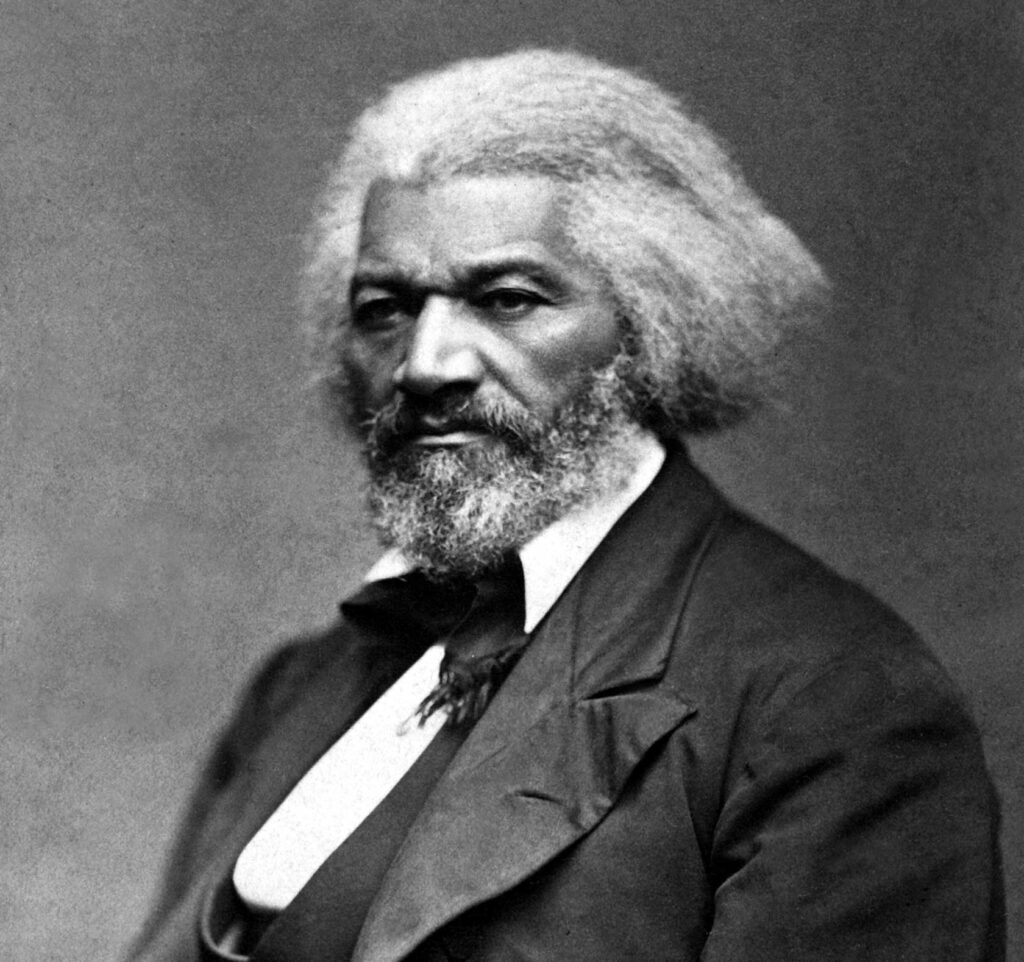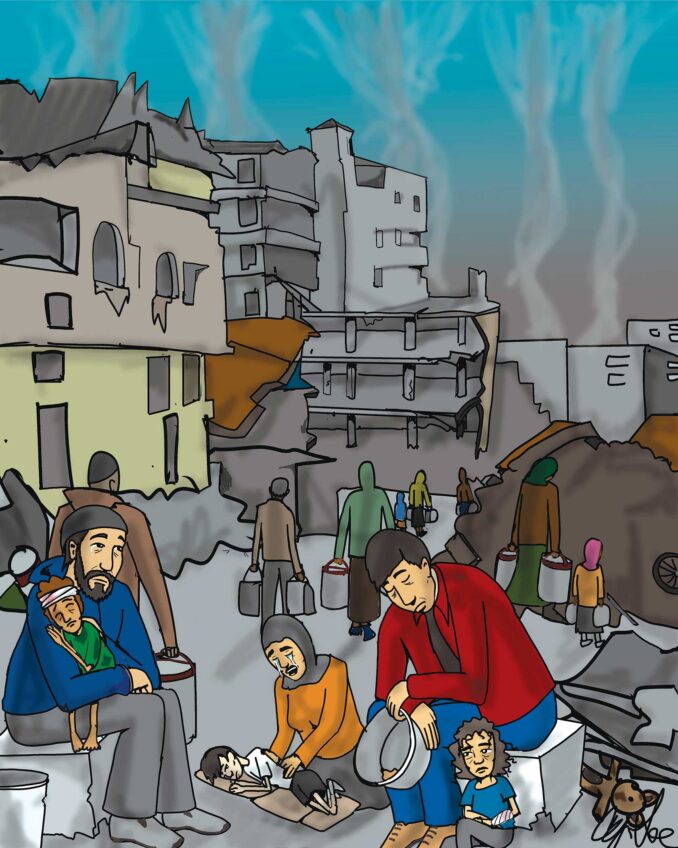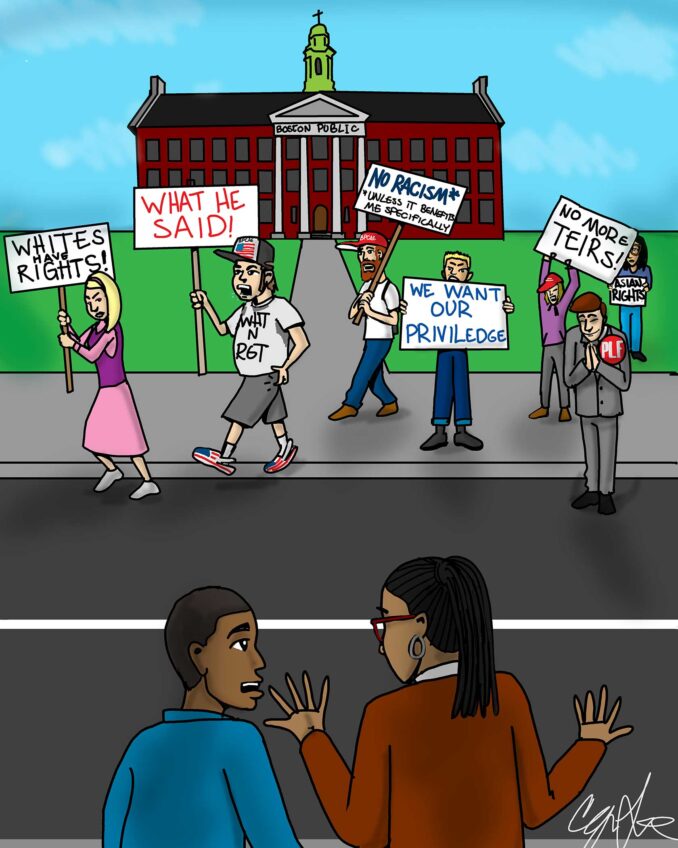
At a time when it feels like the president, Congress, and the judicial branches of government have collectively declared war on Black and brown America — actively reversing or dismantling civil rights, undermining diversity and inclusion initiatives, adopting policies that implicitly place “[white] America first” and attempting to eliminate any trace of Black history — one cannot help but be reminded of Frederick Douglass’ iconic speech, “What to the slave is the Fourth of July?” delivered on July 5, 1852, in Rochester, New York.
Douglass delivered his speech amid profound national divisions. At stake was the stark contradiction between America’s stated ideals — liberty, equality, democracy — and its complicity in slavery, vividly illustrated by the recently enacted Fugitive Slave Act of 1850. Douglass’ decision to speak on July 5, deliberately after Independence Day celebrations, symbolically underscored his argument: America’s celebration of freedom was bitterly ironic and deeply hypocritical in the context of slavery and racial oppression.
Douglass’ moral indictment against American hypocrisy resonated far beyond its historical moment. Over the decades, historians, intellectuals, activists and cultural leaders have returned to Douglass’ incisive critique, continually reaffirming its significance in discussions of racial injustice and inequality in America.
James Baldwin, one of America’s sharpest literary voices, repeatedly invoked Douglass’ speech in his profound explorations of race and identity. Baldwin recognized that Douglass had laid bare the core contradiction of American life — the sharp contrast between professed ideals of liberty and justice and the reality of racial oppression. Baldwin’s reflections reinforced Douglass’ speech as a necessary lens through which Americans must continually assess their society.
Just as Baldwin illuminated Douglass’ historical critique, Ta-Nehisi Coates has extended this analysis to contemporary America. In his groundbreaking essay “The Case for Reparations,” Coates frames Douglass’ speech as foundational to understanding America’s persistent legacy of racism and inequality. Douglass’ powerful interrogation of national hypocrisy serves Coates as a vital historical touchstone, clarifying the systemic injustices that persist into our present moment.
Similarly, scholar Henry Louis Gates Jr. emphasizes the enduring significance of Douglass’ rhetoric by placing it within a broader historical framework. Gates contends that American democracy remains fundamentally incomplete unless it honestly confronts the lived realities of marginalized populations —a task Douglass’ speech repeatedly demands.
Activist-scholar Angela Davis further expands upon Douglass’ critique, using it to challenge the complicity of American institutions in perpetuating racial injustice. For Davis, Douglass’ words are more than historical artifacts; they represent revolutionary potential, a call for persistent resistance against entrenched structural racism.
Historian David W. Blight, author of the Pulitzer Prize-winning biography “Frederick Douglass: Prophet of Freedom,” positions Douglass’ Fourth of July speech as a pivotal moment in American rhetorical tradition. Blight argues persuasively that Douglass’ eloquence transformed the speech into an enduring historical marker — a profound moment of national self-examination that reverberates across generations.
Likewise, philosopher and activist Cornel West often cites Douglass’ speech to critique the persistent moral hypocrisy in American democracy. West identifies Douglass’ rhetorical brilliance and moral clarity as essential tools for understanding and addressing ongoing struggles for racial justice, equality and democracy.
Nikole Hannah-Jones, through the influential 1619 Project, references Douglass’ speech to emphasize the paradox he exposed: the simultaneous existence of America’s freedom ideals alongside the brutal reality of slavery. By highlighting this contradiction, Hannah-Jones reinforces the historical and contemporary significance of Douglass’ message, urging America to grapple seriously with its unresolved racial injustices.
Ibram X. Kendi similarly invokes Douglass’ speech in his scholarship on antiracism, emphasizing how Douglass’ incisive framing remains a powerful foundation for confronting and dismantling modern racial inequalities. Douglass’ moral urgency, Kendi argues, continues to demand a sustained commitment to self-reflection and reform.
Michelle Alexander, author of the book “The New Jim Crow,” connects Douglass’ insights directly to present-day systemic racism, such as mass incarceration. Alexander views Douglass’ speech as prophetic, revealing how racial oppression continually evolves into new forms and structures. Her analysis demonstrates Douglass’ historical foresight, reinforcing his ongoing relevance.
Even former President Barack Obama referenced Douglass’ speech, recognizing its enduring relevance to America’s perpetual struggle between ideals and realities. Obama employed Douglass’ powerful words to underscore the continuing necessity of fighting injustice, reaffirming that America’s progress toward equality remains incomplete without addressing the contradictions Douglass courageously exposed.
Frederick Douglass’ impassioned speech continues to resonate powerfully, shaping contemporary conversations around race, freedom, democracy and justice. Through the diverse and compelling voices of Baldwin, Coates, Gates, Davis, Blight, West, Hannah-Jones, Kendi, Alexander, and Obama, Douglass’ profound call to America remains both relevant and urgent.
In revisiting Frederick Douglass’ passionate indictment of America’s foundational contradictions, we are reminded that confronting these contradictions remains an unfinished task. Douglass’ Fourth of July speech, echoed by these influential figures, continues to demand that America reconcile its professed ideals with lived realities — challenging us all to move beyond mere reflection into meaningful action.
Ed Gaskin is the Greater Grove Hall Main Streets executive director and a graduate of MIT’s Sloan School of Management. He also holds a Master of Divinity from the Gordon Conwell Theological Seminary and is the author of several books and articles on a wide range of topics.







